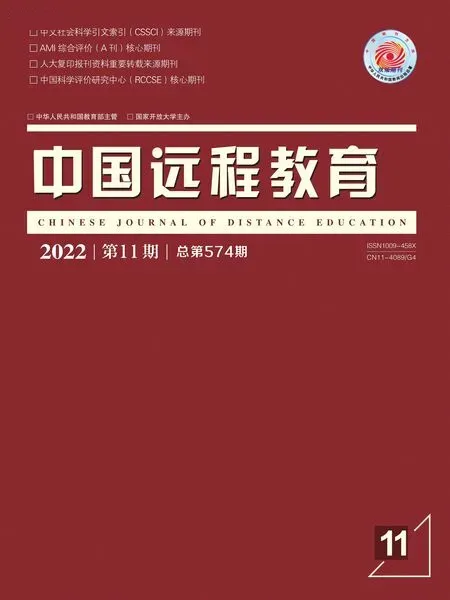Abstracts
Taking advantage of digital transformation affordances to construct the new ecology of smart education
Chaozi Lei
The world is witnessing a new technological revolution,acceleration of industrial change,and a third wave of globalization triggered by digital economy.Against this backdrop,the context of education is destined to change drastically and education must be well prepared to respond to this change proactively.Educational digitalization is a new phase in digitally transforming education.Digital education is an important component of Digital China.This article interprets China’s national strategic actions for educational digitalization.It gives a brief report on the progress of these actions,sums up the achievements in constructing and operating the National Smart Education Public Service Platform,and discusses directions of future development.Put specifically,it is argued that efforts should be made,in line with the so-called“four convergences”(convergence in terms of high level,high efficiency,high standard,and high quality),to fully implement the national strategic actions for educational digitalization,further promote digital transformation of education,and construct the new ecology of smart education so that China can contribute to global education development and Sustainable Development Goal 4 achievement.
Keywords:digital education;smart education;national strategic actions for educational digitalization;educational digitalization;National Smart Education Public Service Platform;digital transformation
Different understandings and new interpretation of smart instruction
Shengquan Luo and Xue Zhang
A text analysis of seminal publications on smart instruction in China shows that there exist different understandings of the concept of smart instruction which are characterized by the dual-focus epistemology of technology and education,the ontology with the attributes of object intelligence,human wisdom,and object intelligence+human wisdom,and the methodology facilitating the synergy between technology,art and technique.It is found that diversity in understanding the concept of smart instruction leads to a mindset featuring subjectless understanding and increases development risk.Informed by the findings,the article discusses ways that the concept of smart instruction should be re-constructed as well as new pathways of future practice.
Keywords:smart instruction;smart education;different understanding;paradigm shift;science fact;value fact;subjectless understanding;pathways of practice
The growth patterns and education pathways of contemporary university stu-dents
Qiuheng Shi and Xinyan Sun
Knowledge of the growth patterns and cohort characteristics of contemporary university students is conducive to cultivating talents required in the new era.Based on the authors’longitudinal research and the data from the National College Student Survey,this study identifies three patterns:the subjective learning pattern characterized by“learning-based”and“learning and applying”,the interactive development pattern characterized by“mutual promotion of teaching and learning”and“peer effect”,and the phased evolution pattern characterized by the learning experience of“excitement and adaptation-dilemma and probing-returning to normal and transcendence”.Findings also demonstrate that the characteristics of the contemporary university student generation include combining mainstream ethos and pragmatic orientation,balancing deep learning and examination preparation,as well as pursuing all-round development and personal excellence.Implications of this study are also discussed.
Keywords:higher education;high-quality education;talent cultivation;growth pattern;“double first class”construction;student survey;university instruction
The innovation and reform of education for the high-quality development of ecoonnoommyy
Changjun Yue
This article analyzes the demand of high-quality economic development for education from the perspective of economics of education.From a macro point of view,China's economic development has entered the post-industrial society but meanwhile faces more intense international competition against the background of economic globalization.It is inevitable that China's high-quality economic development should be innovation driven.The competition of economy depends on the competition of innovation,the competition of innovation depends on the competition of talents,and the competition of talents depends on the competition of education.The macro goal of educational reform and development should be the cultivation of innovative talents for high-quality economic development,while educational innovation is essential to education for innovation.Historically,scientific and technological revolutions and industrial revolutions had significant impacts on national economy and education.China has entered an era dominated by digital economy and service economy,hence the imperative for education to innovate in order to achieve the goal of education for innovation and entrepreneurship.Internationally,there are significant differences in the role of education in promoting the economic growth of different countries.The quality of education and the level of human capital,including innovation,are the key variables that can promote economic growth.From the micro perspective of learners,the rapid development of science and technology and economy has resulted in changes in the content,form and means of education.Education should pay more attention to the improvement of students'ability rather than knowledge.The time used for informal mobile learning gradually exceeds the time of traditional learning with fixed classrooms,fixed teachers and fixed textbooks;however,no matter how the technology changes,the basic goals of people-oriented education and the all-round development of students and the basic needs of students'growth have remained unchanged.
Keywords:economic development;educational reform;innovation;employment;industrial structure

